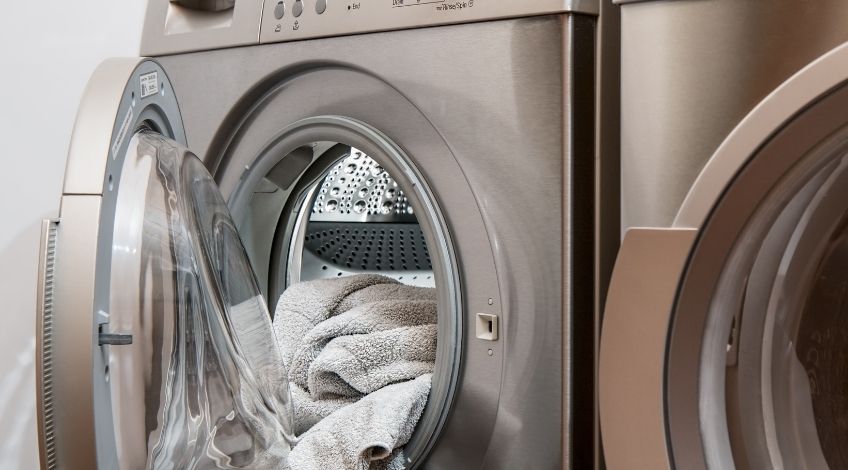
Should You Turn Off Taps When Washing Machine Not In Use?
The short answer to this question is, yes. You should turn off the taps on your water supply to your washing machine when you’re not using the machine. All of the washing machine manufacturers recommend that you turn off the taps which supply water to your machine when it’s not in use.
Why Should You Turn Off The Taps?
If the taps which supply water to your washing machine are left on all the time, the pipes in your machine are constantly under pressure. This raises the chances of getting a leak due to a pipe burst or a seam splitting etc.
This could be more of a problem overnight because there are less people using their water supply which reduces demand and increases the amount of pressure your water supply is under.
Washing Machine Faults
There is the potential for the washing machine’s fill valve to stick and allow water to enter the machine. This water will then put pressure on the internal hoses of the machine, which could cause them to spring a leak which would then flood your home.
It’s especially important to turn the water supply taps off which feed your washing machine in the Winter months as the pipes could freeze and then burst when they thaw out again.
If your washing machine is kept in a garage, outhouse or anywhere that has no heating, then it’s even more important to turn off the water supply to the washing machine when it’s not in use. To prevent the pipes from freezing.
As the water freezes it expands which can damage pipe work. Then, once the ice starts to melt the water will flood through the damaged pipes and flood your garage or wherever the machine is kept.
Home Insurance
If you were unfortunate enough to experience a flood caused by your washing machine bursting a hose when not in use, there’s a fairly high chance your insurance company won’t pay out. This is because washing machine manufacturers recommend turning off water supplies to washing machines when they’re not in use.
Many insurance companies would claim that you were guilty of neglect if your machine caused a flood because you never turned off the mains supply when it wasn’t in use.
What Happens To Water Once It Gets To The Washing Machine?

The way washing machines are designed, they usually have 3 hoses. A hot water pipe, a cold water pipe and a drainage pipe. There is generally more water carried by the 2 supply hoses than the drain hose at any one time.
Water Hammer
Whenever your washing machine turns off it causes a hydraulic shock which is commonly known as a water hammer. In essence it is a shock wave that travels down the pipe caused by the change of the rate of water flow. This water hammer can cause pipes to move ever so slightly and this can often be heard during the wash cycle on the machine.
Over time this slight movement in the pipes coupled with the actual pressure the water is under can cause the pipes in the washing machine to develop small cracks. Or joints and seals can become faulty. If you spot a leak sooner rather than later, it is easier to deal with.
It’s good practice to check all of the pipes and hoses for wear every month, look for any signs of moisture especially around joints and connections. Manufacturers recommend changing water hoses every 3 to 5 years to stop worn pipes from bursting.
Call In An Expert
If you don’t feel confident doing this work yourself, you should contact a professional engineer. It’s a great idea to replace the original pipes with stainless steel braided pipes since these are far stronger than the original plastic or rubber pipes which came with your machine.
Turning Off The Water Supply To The Washing Machine
If you don’t know where the tap is to shut off the water supply to your washing machine, follow the feeder hose(s). On most modern machines there is usually only one feeder hose. Which will be connected to a cold water supply pipe with a tap (usually blue). All you need to do to shut off the water supply, is simply turn the tap the opposite way it is now.
This will prevent your washing machine from flooding your home and is always advisable if you are planning to be away from home for any length of time. Don’t assume it only happens to other people, remember to them, you are other people.
Frequently Asked Questions
You should always turn off the water to disconnect the washer. The supply tap is usually located behind the washing machine.
When the washing machine is not in use, manufacturers recommend turning off the water supply to the machine to prevent potential flooding.
Washing machines do have shut off valves or taps. They are usually located behind the machine and can be found by following the feeder pipe(s) backwards from the machine.
Also, follow us on Pinterest ...



